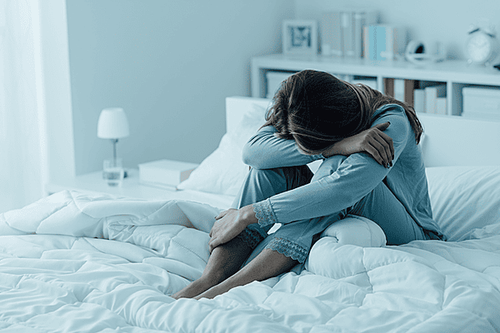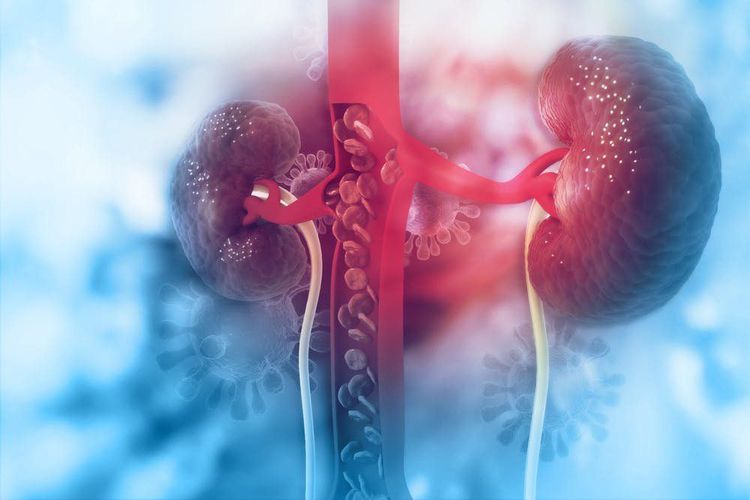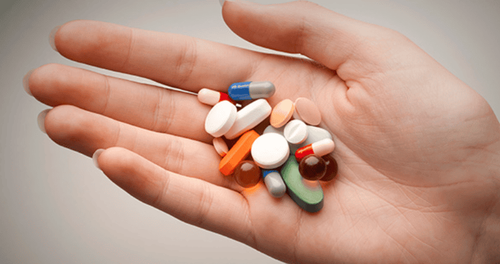This is an automatically translated article.
A new study suggests that lack of sleep may be the gateway to kidney disease, at least for women. For people with chronic kidney disease, poor sleep can increase the likelihood of the disease getting worse.
1. The link between poor sleep and kidney disease from the study
Researchers from Brigham and Women's Hospital in Boston evaluated the sleep habits of thousands of women and found that getting too little sleep can often lead to a faster decline in kidney function. They found that women who slept 5 hours or less per night had a 65% higher risk of rapidly declining kidney function than women who slept 7 to 8 hours per night.
The research team collected data on more than 4,200 women participating in the Nurses' Health Study. Over 11 years, the study participants' kidney function was assessed at least twice.
Lead researcher Dr Ciaran McMullan, a lecturer in medicine, said: “This is worrisome because our sleep duration has decreased over the past 20 years. Americans used to sleep an average of eight hours a night, he said, but now it's about 6.5 hours, and it's decreasing.
He said, it is not yet known whether longer sleep improves kidney function or reverses the damage caused by poor sleep.
McMullan cautions that this study can only show that decreased kidney function is associated with less sleep, not less sleep that causes decline in kidney function. “To do that, more research is needed,” he said. Because the link between disrupted sleep and heart disease has been studied before.
McMullan says the link between reduced sleep and impaired kidney function could be the result of medical conditions that affect kidney function, such as diabetes and high blood pressure.
He said: “Diabetes occurs more often in people who sleep less, as does high blood pressure. "We know that two of the biggest factors that decrease kidney function are diabetes and high blood pressure."
The body's natural rhythms, aka circadian clocks, may also play a role, says McMullan. He explained, the kidneys have a different time at night than during the day because the body's needs are different.
McMullan suggests: “It is possible that napping changes the physiology of the kidneys on a daily basis, and these changes may be harmful to the kidneys.
As the US population ages and more people develop diabetes and high blood pressure, the number of people with kidney disease will increase, and too little sleep may play a role, he added. “We are a sleep-deprived society. "The worry is that lack of sleep will lead to impaired kidney function."
Dr. McMullan's research takes a closer look at the secretion of melatonin, which is the hormone our bodies naturally produce to synchronize nocturnal functions. As part of the study, healthy participants had their sleep restricted and their hormone levels and kidney function measured.
The study will also include people with poor sleep habits and will ask them to sleep longer hours to see if it affects their physiology, blood pressure, blood glucose levels and kidney function. Half of these will also be given melatonin supplements to see if that affects their kidney function over time.

Ngủ kém có thể ảnh hưởng tới chất lượng cuộc sống của người bệnh
“So we're not just looking at people's sleep patterns, we're trying to see if there might be some sort of intervention that people with sleep deprivation can take,” Dr. Dr. McMullan said.
A better understanding of how the kidneys work and interact with our hormones at night could also help identify better nutritional guidelines and optimal timing for drug delivery. This is because the kidneys' ability to process drugs and nutrients like sodium and potassium changes between day and night.
Research can identify new groups of people who are at higher risk of developing chronic kidney disease due to their lifestyle or work schedule, such as shift workers and people with chronic sleep deprivation .
McMullan says: “These problems need to be considered as risk factors because it means these people may need more aggressive screening for kidney disease and blood pressure management.
2. Poor sleep and progression of chronic kidney disease
For people with chronic kidney disease, poor sleep can make their disease worse, new research adds to the harmful effects of poor sleep.
The study included 432 adults with chronic kidney disease. The researchers tracked their sleep habits for five to seven days using a wrist-worn tracker. The researchers then tracked their health for an average of five years. In the participants slept an average of 6.5 hours a night; The study found that 70 of them developed kidney failure and 48 died.
After adjusting the statistics so they weren't affected by other risk factors like weight or heart disease, the researchers linked each extra hour of sleep at night with a lower risk of kidney failure almost 19%. Study author Dr Ana Ricardo, University of Illinois at Chicago, said: "Sleep and sleep disruption are significant but underappreciated risk factors for disease progression. chronic kidney disease. Our study adds to the accumulated knowledge about the importance of sleep for renal function and highlights the need to design and test clinical interventions to improve health habits. sleep in people with chronic kidney disease.”
However, research has not clearly shown that lack of sleep is the cause of worsening kidney failure.Research can only find a link between these
Sleep quality is also important: People with worse sleep are also more likely to have kidney failure
The researchers also found that people who reported they were sleepy during the day days with a 10% higher risk of death during follow-up.

Ngủ kém có thể khiến người bệnh gặp tình trạng suy thận
3. How to have better sleep
The harmful effects of poor sleep, not only on kidney disease, but other organ systems and overall health, are something we all understand and want to avoid. However, how to get quality sleep, especially patients who are being treated for chronic diseases, is not easy. Patients and caregivers need to follow the doctor's treatment, monitor their sleep status and other symptoms of the disease, and avoid using drugs or supplements to support sleep without consulting. treatment, in order to avoid harm on top of harm, overloading the kidneys and other organs. It is important to visit a doctor as soon as you encounter problems so that they can be properly treated early.
Please dial HOTLINE for more information or register for an appointment HERE. Download MyVinmec app to make appointments faster and to manage your bookings easily.
References: webmd.com, kidney.org













